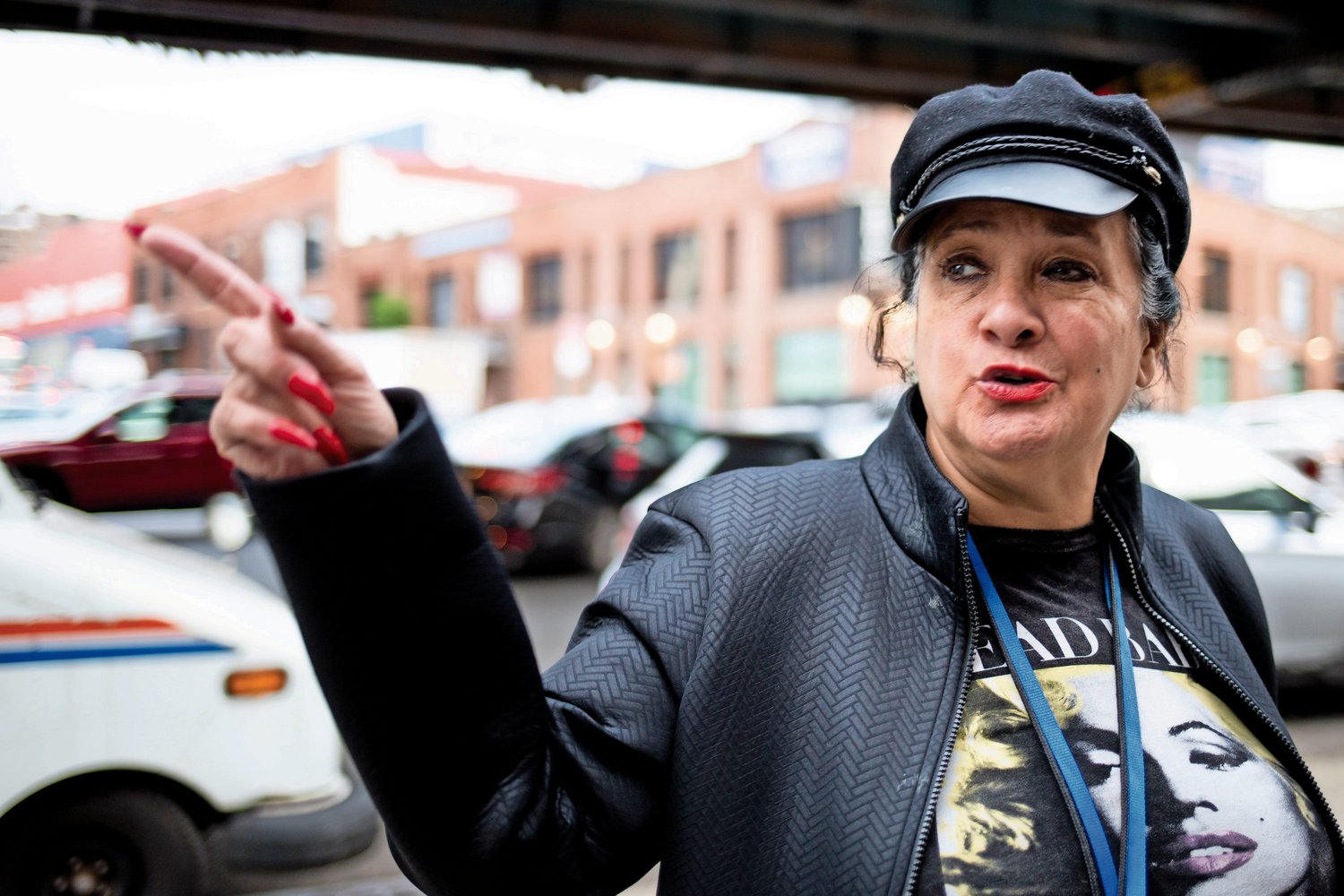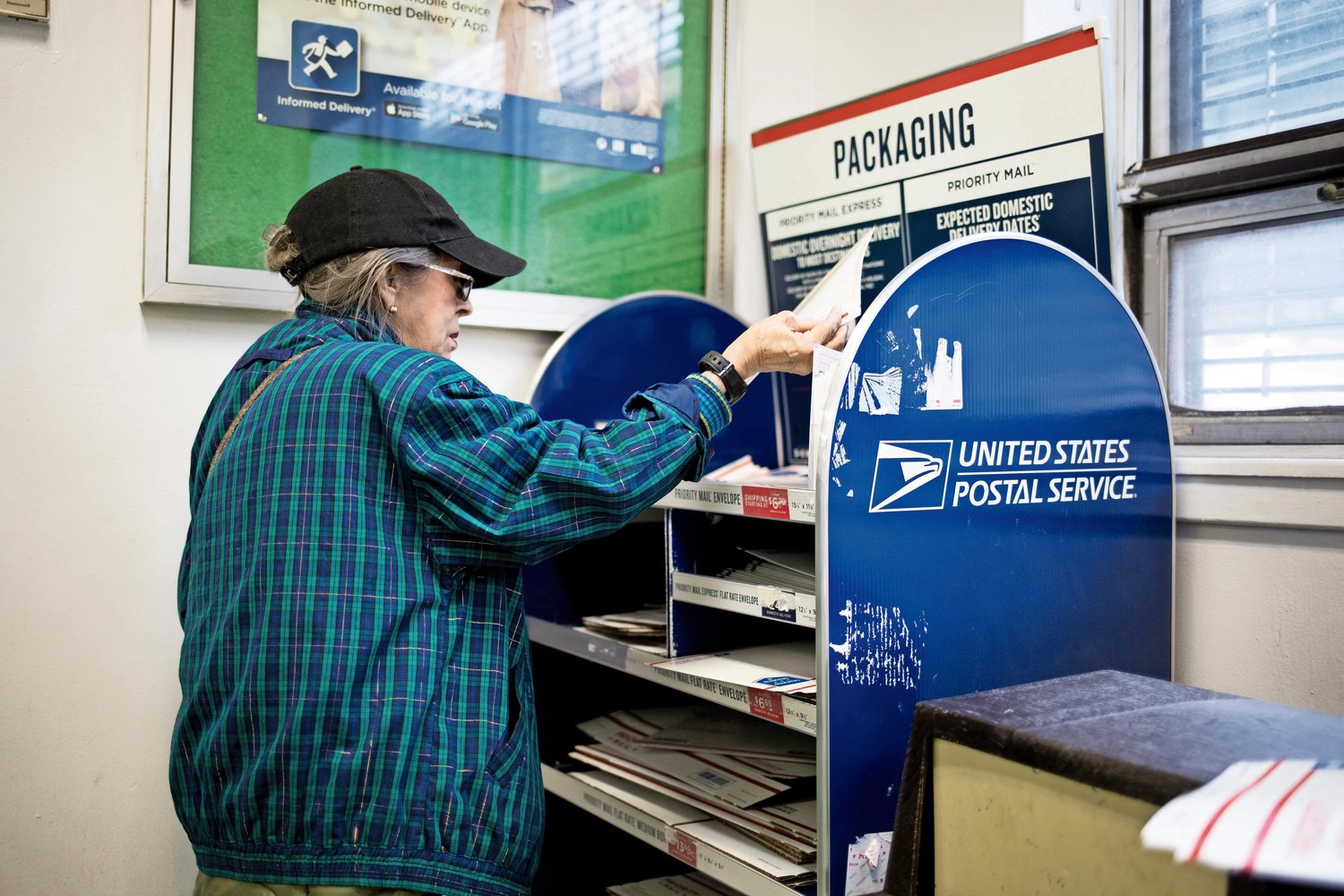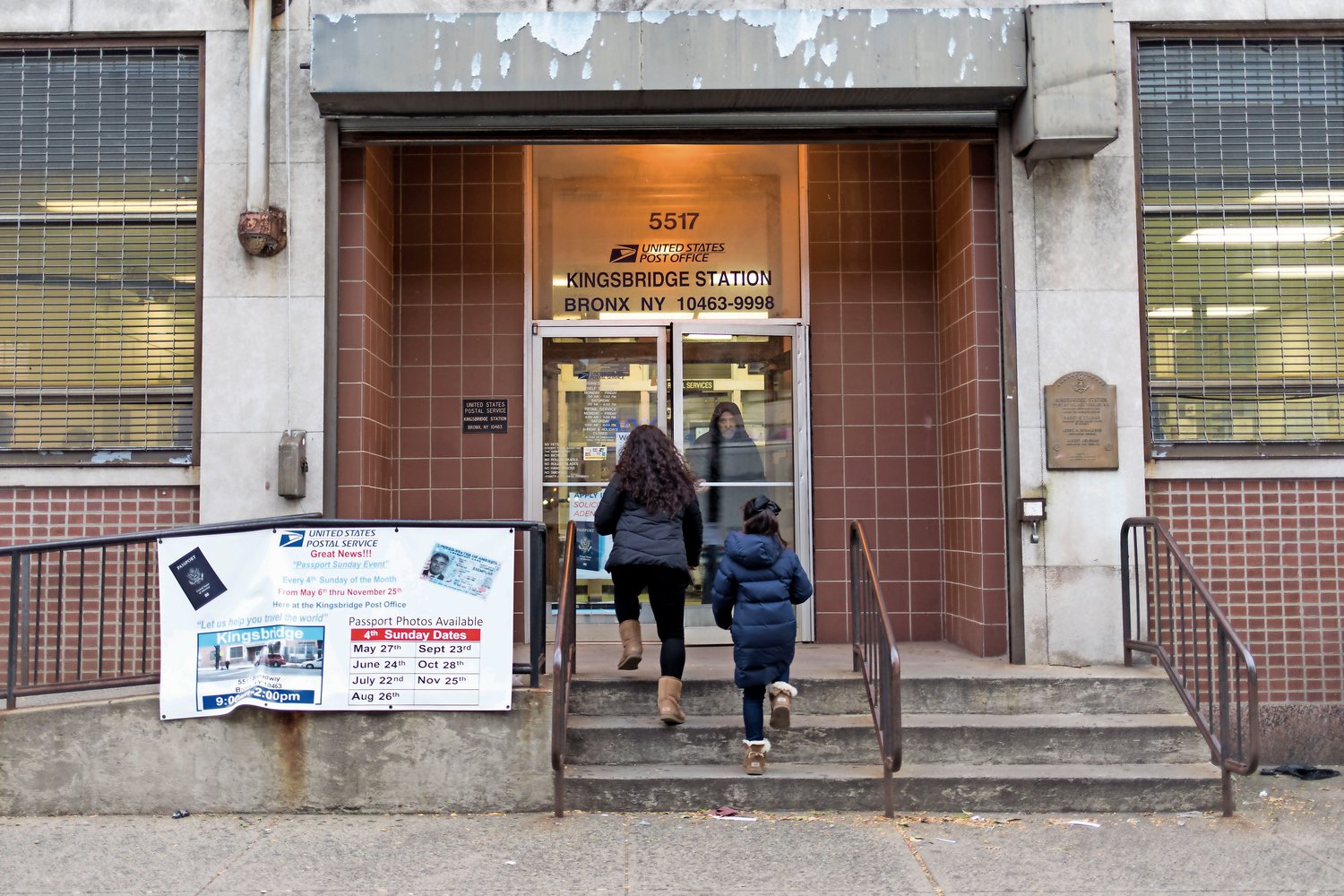Banking? At the post office?
The time to bring back basic banking services to the post office is now, says a coterie of federal lawmakers — especially in the Bronx, where sizeable swaths of the population either don’t have bank accounts, or suffer from inadequate financial services.
U.S. Reps. José Serrano, Eliot Engel, Adriano Espaillat and Joseph Crowley have been leading efforts in Congress and at the local level for the U.S. Postal Service to take immediate action, under its existing authority, to reestablish affordable financial services. This includes ATMs, paycheck cashing, bill payment and electronic money transfers inside post offices in the borough.
Community is under-banked
More than half of Bronx households either don’t have a bank account or use cheaper alternative financial institutions even if they do, Serrano’s office said, citing data from the Federal Deposit Insurance Corp.
According to the U.S. Postal Service Office of Inspector General, under existing regulatory authority, post offices can still provide these kinds of services, Serrano’s office said. Doing so wouldn’t just help residents, however. It would also increase revenue at post offices by increasing demand.
“Access to financial services remains a serious problem in the Bronx,” the congressmen wrote in a letter to postmaster general Megan Brennan last month. “The postal service can be part of a solution.”
Nearly 8 percent of households nationally don’t have a bank account, the congressmen wrote, but it’s worse in the Bronx, where more than a fifth of households lack bank accounts, and almost a third have bank accounts but tend to rely more on sometimes cheaper alternative institutions — meaning more than half of the borough’s homes are “underserved” by traditional banks.
The fix is in the postal services’ hands, the congressmen wrote, pointing to a 2014 inspector general office white paper in which the inspector general indicated such banking services can be provided under the postal services’ existing regulatory authority.
“Millions of Americans do not have a bank account, or use costly services like payday loans and check cashing exchanges just to make ends meet,” the inspector general’s office wrote at the time. The postal service, meanwhile, could provide non-bank financial services to residents whose needs aren’t met by the traditional financial sector, largely by partnering with banks.
USPS previously operated the Postal Savings System between 1911 and 1967, the congressmen wrote, allowing depositors to establish savings accounts and purchase bonds at local post offices. And with more than 40 post offices in the borough, at least some of the infrastructure is there.
A ‘win-win’
“It is not a unique solution,” the congressmen wrote, with more than 1.5 million consumers worldwide using financial services at post offices, while postal banking in industrialized countries accounts for more than 14 percent of postal revenue on average.
“Postal banking is a win-win solution,” the congressmen concluded, one that will provide a public banking option for the borough’s struggling families while bringing more people into post offices for actual postal services.
“When I came from Puerto Rico, I remember one of the places that everybody went to get banking services, in the Puerto Rican community, was the post office,” Serrano said, “not necessarily a bank.”
Banking at the post office also adds a measure of trust, the congressman added, since it’s an established federal institution.
Things have changed in the last 50 years, Engel said. If the post office wants to remain relevant, it must adapt to the changing ways people communicate, which means fewer people buying stamps and greater deficits for the postal service.
As to how to implement such a program, Engel says to leave it to the post office.
“I don’t think we should tell the post office how to implement it,” Engel said. “They need to figure out how to do it.”
Engel referred to an inspector general report claiming that offering banking services could create a haul of up to $9 billion annually, significantly slashing the Postal Service’s $15 billion debt.
But it’s not just about money.
“The post office and powers that be seem to want to turn the post office into a postal business,” said Jonathan Smith, president of the New York Metro Area Postal Union. “My concern is to keep it a postal service.
“The beautiful thing about postal banking is we don’t have a board of trustees. We don’t have a board of directors to answer to. Therefore, our mission would not be about profit. Our mission would be what the postal service was always intended to be about — service to the community.”
USPS already doing it?
Postal banking “flourishes” in Europe and Canada, Smith said, and is “very appreciated by their citizens.”
In fact, the postal service currently provides certain financial services appropriate to its existing infrastructure, said spokesman Xavier Hernandez, including money orders, electronic funds transfers, and U.S. Treasury check cashing.
The USPS mission is to provide residents with “trusted, affordable mail service,” Hernandez said. “Our core function is delivery, not banking.”
Public policy and regulatory issues must be addressed before the postal service invests in an area outside its core function, Hernandez added.
In places like North Riverdale and Kingsbridge, residents are weary of local post offices’ shortcomings.
Expanded postal banking services would be a huge convenience, said Steven Sanchez, who lives in upper Manhattan but found himself in the Kingsbridge post office on a gloomy afternoon because one of his packages was shipped to the wrong location. With more banking options at his local branch, he needn’t go trekking to the bank as often.
Janet Faneytte said more postal banking at the Kingsbridge branch would save her trips to Citibank at West 233rd Street.
“It would be marvelous,” she said in Spanish.
“Yeah, why not?” agreed Carmen Rodriguez of West 251st Street. “You could do everything at one time,” like withdrawing more cash out of an ATM.
‘Gaining support’
Serrano seems optimistic residents could enjoy more of these services under one roof in the not-too-distant future.
“This seems to be gaining support,” he said. “There’s no reason why anyone in the community would not want to get their banking services at the local post office. All we’re asking for is, ‘Hey, try it out in the Bronx. Let’s see how it affects communities. Let’s see how they react to it.’
“We’re not reinventing the wheel here. And if the banks feel threatened, they can start competing with the post office. That’s always good for the consumer.”











